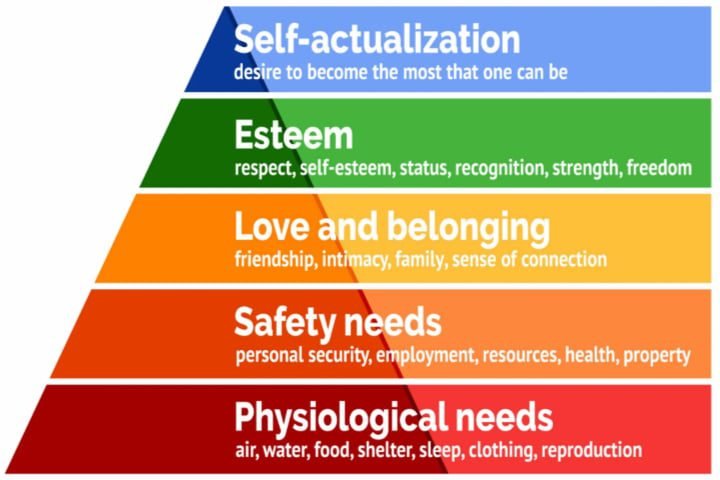How Culture Shapes Our Understanding of Maslow’s Hierarchy of Needs
By John Fisher (assisted by AI)
Maslow’s Hierarchy of Needs is a widely recognized framework that categorizes human needs into a pyramid, starting with basic physiological needs and culminating in self-actualization. However, this framework is not universal in how it is interpreted or prioritized across different cultures. Cultural values and societal norms significantly influence how individuals and communities perceive and fulfill these needs. This article explores how culture impacts Maslow's hierarchy, from the prioritization of needs to the ways in which they are defined and achieved.
Key Points
1. Prioritization of Needs
In individualistic cultures, personal achievements and self-actualization often take precedence. For example, individuals might prioritize pursuing personal goals or career aspirations over community obligations. In contrast, collectivist cultures emphasize social connections, belonging, and community roles. Hofstede (1980) highlights that these cultural tendencies influence the order in which people seek to fulfill their needs.
2. Definition of Needs
The interpretation of self-actualization varies significantly between cultures. In Western societies, it might involve reaching personal potential or achieving career milestones. However, in collectivist cultures like China, self-actualization often revolves around fulfilling one’s role within the community or family (Nevis, 1983). These differences underscore the cultural specificity in how needs are perceived.
3. Barriers and Facilitators
Cultural norms can either support or limit access to certain levels of the hierarchy. For instance, societal expectations surrounding gender roles may restrict opportunities for self-fulfillment in some cultures. Markus and Kitayama (1991) emphasize that these barriers can shape how individuals pursue their aspirations, particularly in contexts where societal constraints are deeply ingrained.
4. Context-Relative Nature of Needs
Economic conditions also play a crucial role in shaping the hierarchy of needs. In economically disadvantaged cultures, physiological and safety needs are likely to dominate as survival takes precedence. Conversely, in more affluent societies, individuals often focus on esteem and self-actualization (Tay & Diener, 2011). This context-relative nature demonstrates how situational factors interact with cultural values to influence need prioritization.
5. A Dynamic Perspective
Culture is not static, and globalization has led to shifts in how needs are perceived. Exposure to different cultural norms can result in the blending of values, where individuals adopt aspects of both collectivist and individualistic approaches. This dynamic perspective allows for a more flexible understanding of Maslow’s hierarchy in a globalized world.
Conclusion
Maslow’s Hierarchy of Needs provides a valuable framework for understanding human motivation, but it is far from a one-size-fits-all model. Cultural context shapes how needs are prioritized, defined, and fulfilled, highlighting the importance of considering societal norms and values in applying this framework. Recognizing these cultural influences not only enriches our understanding of human behavior but also fosters greater empathy and inclusivity in addressing psychological health and well-being worldwide.
References
Hofstede, G. (1980). Culture's consequences: International differences in work-related values. Sage.
Markus, H. R., & Kitayama, S. (1991). Culture and the self: Implications for cognition, emotion, and motivation. Psychological Review, 98(2), 224–253.
Nevis, E. C. (1983). Using an American perspective in understanding another culture: Toward a hierarchy of needs for the People's Republic of China. Journal of Applied Behavioral Science, 19(3), 249–264.
Tay, L., & Diener, E. (2011). Needs and subjective well-being around the world. Journal of Personality and Social Psychology, 101(2), 354–365.
Triandis, H. C. (1995). Individualism & collectivism. Westview Press.
Keywords: Maslow’s hierarchy, cultural differences, psychological health, individualism, collectivism
Hashtags: #MaslowHierarchy #CulturalDiversity #PsychologicalHealth #GlobalPerspectives #HumanMotivation
